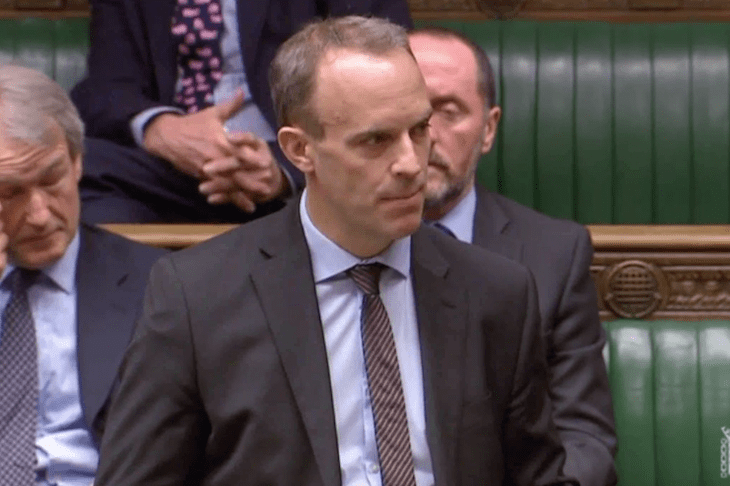I resigned from the Cabinet because I could not support the government’s Brexit deal. And I still judge it to be a poor deal. But I also recognise that with the government purporting to take no deal off the table, and its acquiescence in the extension of Article 50, that we potentially face an even worse alternative that could reverse Brexit and betray our democracy.
In extending Article 50 and signalling it was taking a WTO exit off the table, the Government weakened its own negotiating position in Brussels, and I’m afraid it heartened those in Parliament trying to frustrate Brexit. This was a serious mistake, one which breached the clear commitments made in Parliament and in the 2017 Conservative manifesto.
As a direct result of that political choice, we now face a real risk of the UK being forced to accept something akin to Single Market Membership – losing control over our laws, our borders and an independent trade policy.
Worse still, the actions of the government give rise to the very real concern that it would acquiesce in a further longer extension – which on both sides of the Channel would be used to try to exhaust the UK into revoking Brexit altogether. That is something that I believe we must not entertain or allow.
In fairness, I recognise that the government has provided some extra reassurances at the domestic level that Northern Ireland will not be forced, alone, to follow EU regulations. That is of some value, although I recognise that there are still some considerable concerns because those assurances are not contained within the Withdrawal Agreement, and are not binding at the international level.
The unilateral declaration and joint instrument relating to the exit from the so-called ‘backstop’ do not change our international legal obligations, and frankly they offer scant political comfort.
In all this, however frustrating, we need to proceed with realism. The choice, now, is between the risk of being held in the backstop by the EU for a period (from 2021) without being able to control our exit, and a significant risk of losing Brexit altogether.
Neither are palatable. Both could have been avoided if the government had showed the requisite resolve and political will.
I appreciate that, for many MPs, this presents a finely balanced judgement call. I share the deep frustrations many feel at being presented with two such unsavoury alternatives. But, anger is not a political strategy.
In this fast-moving and fluid landscape, we must assess the specific and tangible decision before us, at this point in time. The motion today explicitly does not satisfy section 13(1)(b) of the EU Withdrawal Act so this is not, in practice or in law, the third Meaningful Vote.
However, the vote does have serious legal and practical implications. Firstly, it is necessary to satisfy the EU Council Decision of 22 March, in order to avoid and indeed prevent the government from returning to the EU to seek an even longer extension. I regard that as essential.
The second implication of the motion, by virtue of that, is to avoid the UK holding European Elections in May – which would in my view be dangerously corrosive of public trust in our democracy. I view that as essential too.
The third implication is that, a duly constituted third Meaningful Vote will have to return to Parliament for a vote. And that buys the government a little more time.
In my view, the government should use that time to revert to the EU and seek the legally binding changes to provide an exit from the backstop, and the reassurances that others are seeking, in line with the Brady amendment.
Why is it that the EU’s position is treated as immutable and unmovable, but the UK is always expected to bend?
At the same time, as the risk of a departure on WTO terms rises, it would be pragmatic, realistic and sensible on all sides to seek a range of memoranda of understanding on how the UK and EU could work together to mitigate the risks of no deal, for businesses, jobs and livelihoods on all sides. Arrangements are already in place to keep the flow of HGVs running, and airplanes flying. We have some time to prepare further and collaborate with the EU, to mitigate any potential disruption on either side of the Channel. Given the uncertainty, any responsible government should do all it can in this respect.
Of course, if the EU reject all of these offers and overtures, it must take its responsibility for the consequences of its political intransigence.
On that basis, I am voting for this motion without prejudice to my position on the third Meaningful Vote, to achieve two essential outcomes – to stave off a longer extension and prevent European elections being held in this country in the expectation, or at least the hope, that the government can more vigorously pursue the reassurances required to render the Withdrawal Agreement and Political Declaration acceptable.






Comments